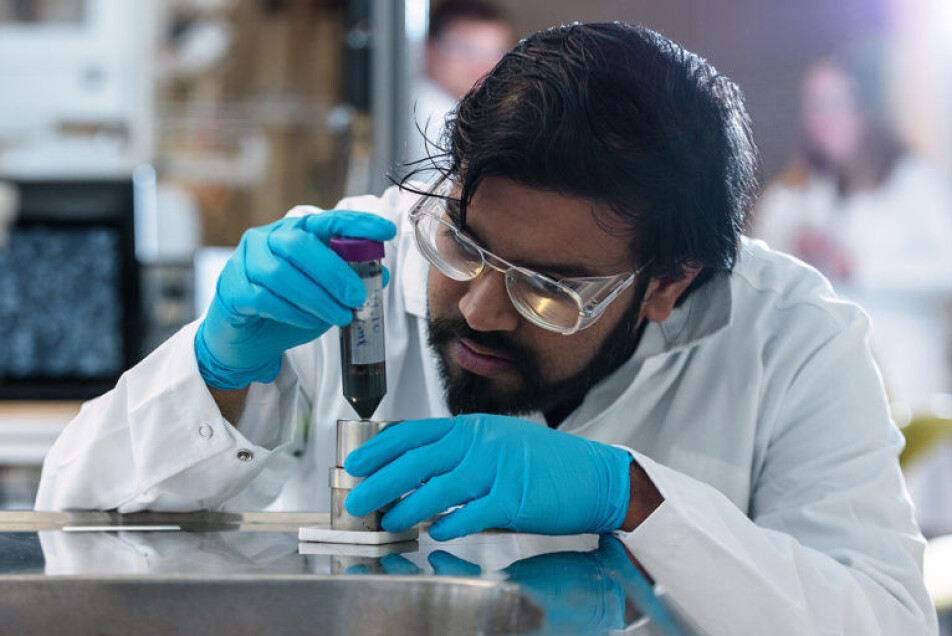THIS ARTICLE/PRESS RELEASE IS PAID FOR AND PRESENTED BY NTNU Norwegian University of Science and Technology - read more
Not enough COVID-19 tests? No problem, we’ll make them!
PODCAST: The story of what happened when a molecular biologist, some engineers and PhDs and postdocs from NTNU and St Olavs Hospital put their heads together to design a completely different kind of coronavirus test.
Norway’s first coronavirus infection was detected on February 26. Newspapers had already begun to warn of shortages of personal protective equipment and tests. On March 12th, the government essentially shut the country down, in a effort that was rapidly duplicated the world over.
And like every other country in the world, Norway quickly began to run out of tests. In Trondheim, St Olavs Hospital began to feel the pinch and by March 20, the situation was dire. They broadcast an email to their colleagues at NTNU, asking for help with RNA diagnostic kits.
One of those emails ended up in the mailbox of Magnar Bjørås, a professor of molecular biology at NTNU’s Department of Clinical and Molecular Medicine.
“When I saw that email, I thought immediately, of course we have kits, but we have kits maybe for two, three, 400 samples, it’s nothing because we don’t do large scale RNA extraction. We do small scale,” he said on the newest episode of 63 Degrees North, NTNU’s English language podcast. “So then I started to think there is no way we can provide them with anything that can support them in short run or long run.”
Never say never
But Bjørås was used to making his own diagnostic kits for his research, and he decided maybe he could cook something up in the lab that could help in the short term.
He and his colleagues came up with a possible test, but decided it wouldn’t work on a large scale.
And then one of the researchers that Magnar worked with knew about another researcher over in NTNU’s Department of Chemical Engineering who was doing some interesting work with nanoparticles. They sent a general email out to the department and asked for help.
From water research to deadly viruses
Fortunately, that email ended up in the mailbox of Sulalit Bandyopadhyay, then a postdoc at NTNU’s Department of Chemical Engineering.
He had been working with tiny iron oxide particles coated with silica. The particles were labelled with a little DNA barcode. By dropping these little harmless particles into a river, for example, they could trace the flow of the water along its journey, by sampling the water, plucking their little iron oxide particles up using a magnet and reading the barcode.
As it happened, they had already decided to try attaching RNA to the particles.
And the SARS-CoV-2 virus, the virus that causes COVID-19, is an RNA virus.

The researchers teamed up and assembled a working group that decided to see what they could cook up.
The NTNU researchers weren’t alone, as it happens. A recent article by science journalist Ed Yong described how researchers across the planet did as NTNU’s researchers did.
“Thousands of researchers dropped whatever intellectual puzzles had previously consumed their curiosity and began working on the pandemic instead. In mere months, science became thoroughly COVID-ized,” he wrote.
That happened in Norway too, and not just with the NTNU tests. The Research Council of Norway doled out 228 million kroner — about 26.5 million US dollars — in emergency support for corona-related research, on everything from the effects of the pandemic on health workers to a study of the political, social and ethical implications of using smartphone apps and other digital tools in the response to COVID-19.
But to learn more about how NTNU’s researchers went on to tackle the shortage of coronavirus tests in a very unorthodox way, you’ll have to listen to the latest episode of 63 Degrees North.
Here’s a video that explains how the test actually works:
See more content from NTNU:
-
This determines whether your income level rises or falls
-
Why is nothing being done about the destruction of nature?“We hand over the data, but then it stops there"
-
Researchers now know more about why quick clay is so unstable
-
Many mothers do not show up for postnatal check-ups
-
This woman's grave from the Viking Age excites archaeologists
-
The EU recommended a new method for making smoked salmon. But what did Norwegians think about this?





































